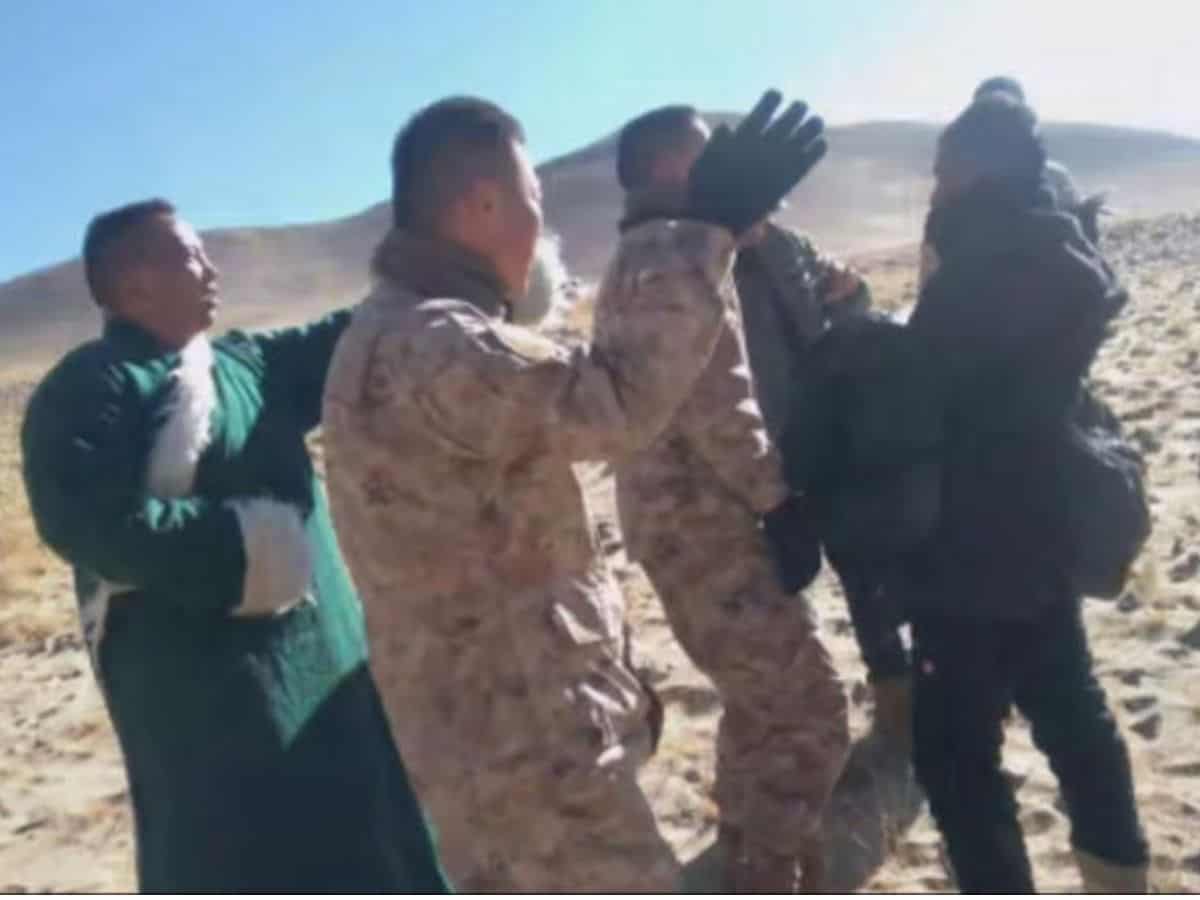
Tensions have escalated in a remote Ladakh border region following an incident where locals clashed with Chinese People’s Liberation Army (PLA) soldiers who were patrolling the area earlier in January. According to reports, the local herders threw stones at a Chinese army unit for denying them access to the grazing pastures.
The incident was reported on January 2 at Nyoma village in the Chushul Valley of Ladakh, bordering the Chinese-controlled part of Tibet. PLA soldiers arrived in three armoured vehicles and at least 12 unarmed soldiers and intercepted the group of hearders at Patrolling Points 35, 36, 37 in Dungti village.
A video of the incident was later shared on social media. “Why are you here?” a hearder purportedly yells in Tibetan at a PLA soldier. Another soldier is seen blocking the camera of a hearder recording the incident.
In response to the incident, the PLA has reportedly imposed restrictions in Kakjung area of Ladakh and blocked the area.
Not the first incident
There have been several incidents in the past where the Chinese military turned away herdsmen from their traditional pastures in Ladakh. There have been several incursions with the Indian Army allegedly losing access to Demchok, the Depsang Plains, and other locations in eastern Ladakh.
Chushul Councillor Konchok Stanzin, who posted the video on X, said that nomads put up a brave face when PLA soldiers stopped their livestock from grazing. “The livelihoods of locals have been taken away in the name of buffer zones and patrolling points. Our nomads are struggling for their land,” Stanzin told The Wire.
‘What do animals know about the border’
Ishey Spalzang, the in-charge councillor of Nyoma constituency of Ladakh said the Chinese Army have constantly pushed the boundary so that there is no place to graze.
“What do animals know about the border when there is no fence! The area is very close to the Line of Actual Control. We have asked the administration to raise the issue with the PLA so that our herdsmen can continue grazing their livestock there,” he was quoted by The Wire.
The grazing period starts in November or December. Post the winter, the herdsmen move downwards towards the plains of Ladakh.
Speaking of a similar altercation that happened in the Kakjung Valley Spalzang said that the administration had advised the herdsmen to set up stone shelters, which was again objected to by the Chinese Army. It heavily impacts the livelihoods of herdsmen.
“A similar incident had happened earlier also in Kakjung Valley. At that time, the administration had facilitated the tribal families by setting up two stone shelters,” he said, adding that the Chinese forces have been raising objections to these structures. “These restrictions directly impact the livelihoods of herdsmen,” Spalzang added.
No progress post Galwan Valley clash
The deadly Galwan Valley clash between the Indian and Chinese soldiers in 2020 has led to very little progress between two the Asian countries. Congress national general secretary Jairam Ramesh said despite 18 rounds of military talks between two senior officers, China denies to access the 2,000 square km which belongs to India. “The Indo-China bilateral relations are on a downward spiral,” he said.
